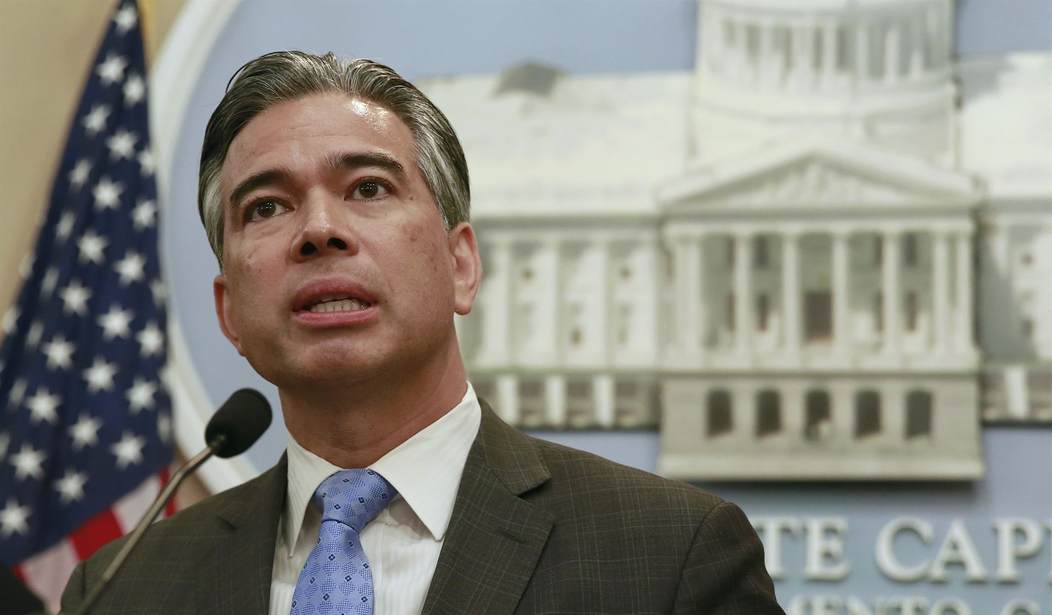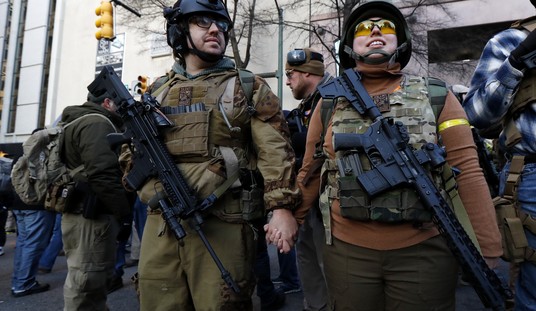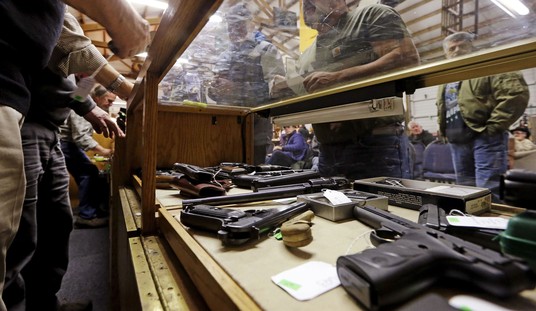California Attorney General Rob Bonta dropped a bit of a legal bombshell on Thursday night, filing a supplemental brief in federal court to declare that his office will not be defending a controversial new law that’s designed to make it nearly impossible for Second Amendment organizations and gun owners in the state to challenge any of the state’s gun control laws.
The measure, known as SB 1327, was put forward by Gov. Gavin Newsom in response to Texas legislation that allows individual citizens to sue abortion providers in the state. Under SB 1327, not only are California residents entitled to sue gun makers or distributors who violate California law by selling “assault weapons”, but a bizarre new legal standard was imposed on anyone suing over the questionable constitutionality of the state’s gun laws; unless the plaintiffs were successful with every one of their complaints, the state would be entitled to recover attorneys’ fees from the plaintiffs (and perhaps even their attorneys as well). If, on the other hand, the plaintiffs do manage to win on every count included in their lawsuit, the state isn’t obliged to pay them a penny to recover their court costs.
Bonta had slammed Texas lawmakers for approving their abortion bill, accusing them of passing a clearly unconstitutional statute, which made his defense of California’s response more than a little awkward. On Thursday, Bonta thew in the towel and informed the court that Gov. Gavin Newsom’s office is prepared to intervene and defend the statute, because his office will no longer do so.
But under the particular circumstances of this case, the Attorney General will not be defending the merits of SB 1327. Consistent with the constitutional concerns the Attorney General has raised about SB 8, including well before SB 1327 became law, he has committed not to seek fees under section 2 of SB 1327 unless and until the nearly identical provision in SB 8 is judicially determined to be constitutional and enforceable.
In light of those same constitutional concerns that this type of feeshifting provision interferes with the right of access to the courts, and consistent with his commitment not to seek fees under SB 1327, the Attorney General is not in a position to defend SB 1327’s fee-shifting provision on its merits.
That said, SB 1327 was duly passed by the Legislature and signed by the Governor. It is California law. Certainly, if the fee-shifting provision in SB 8 is ultimately upheld as constitutional, the identical provision in SB 1327 should be enforceable to the same extent. But at this time, the Attorney General is not in a position to defend the merits of a provision that is indistinguishable in relevant part from a provision that he has opined is unconstitutional. As noted above, other constitutional officers and state officials may take a different view, and the Governor has provided Defendants notice that he intends to move to intervene to address the merits of SB 1327. Defendants do not oppose the Governor’s motion to intervene in this case.
Though Bonta is stepping away from defending SB 1327, this doesn’t signal a change of heart when it comes to his support for more restrictions on the right to keep and bear arms. In fact, in the same supplemental brief Bonta offered the federal court a suggestion on how to deal with the law going forward; including keeping the ability for California residents to sue gun makers and distributors in place.
If, after considering arguments from the parties and the Governor, the court determines that the fee-shifting mechanism in SB 1327 is unconstitutional, it would be appropriate for the Court to enter a declaratory judgment that the fee-shifting mechanism in SB 1327 unconstitutionally interferes with the right of access to the courts and may not be enforced by Defendants against Plaintiffs and their attorneys. The judgment should not address SB 1327’s separate provision regarding a private right of action, which is not at issue in this case. I
If the courts in the pending litigation in Texas ultimately hold that the fee-shifting provision in section 4 of SB 8 is constitutional and enforceable, however, then the identical provision in SB 1327 should be valid and enforceable to the same extent. For that reason, any judgment against Defendants should state that it is without prejudice to Defendants returning to this Court to apprise the court of developments in the SB 8 litigation and to seek modification of the judgment in the event that SB 8’s fee-shifting mechanism is upheld as constitutional and that decision is affirmed on appeal or no appeal is taken.
Bonta’s basically urging the Ninth Circuit to simply follow the Fifth Circuit’s lead, at least if that appellate court chooses to uphold the Texas abortion law in whole or in part. It’s a weaselly argument to make, not to mention one that undercuts his alleged concern over the unconstitutionality of both provisions, but Bonta clearly wants to be a good team player for California Democrats even if his previous criticism of the Texas fee-shifting measure makes it impossible for him to defend the even more ridiculous fee-shifting provision in SB 1327.
Next week U.S. District Judge Roger Benitez is scheduled to hold a hearing on the plaintiffs’ request for a preliminary injunction in the challenges to SB 1327, known as Miller v. Bonta and South Bay Rod & Gun v. Bonta, respectfully. It sounds like it’ll be Newsom’s office and not Bonta’s taking the lead in defending the new law before “Saint Benitez” on December 16th, but no matter who’s standing up for SB 1327 in federal court I think they’ve got their work cut out for them, and I wouldn’t be surprised at all to see Benitez slap an injunction on SB 1327 and its chilling effects on Second Amendment litigation.









Join the conversation as a VIP Member